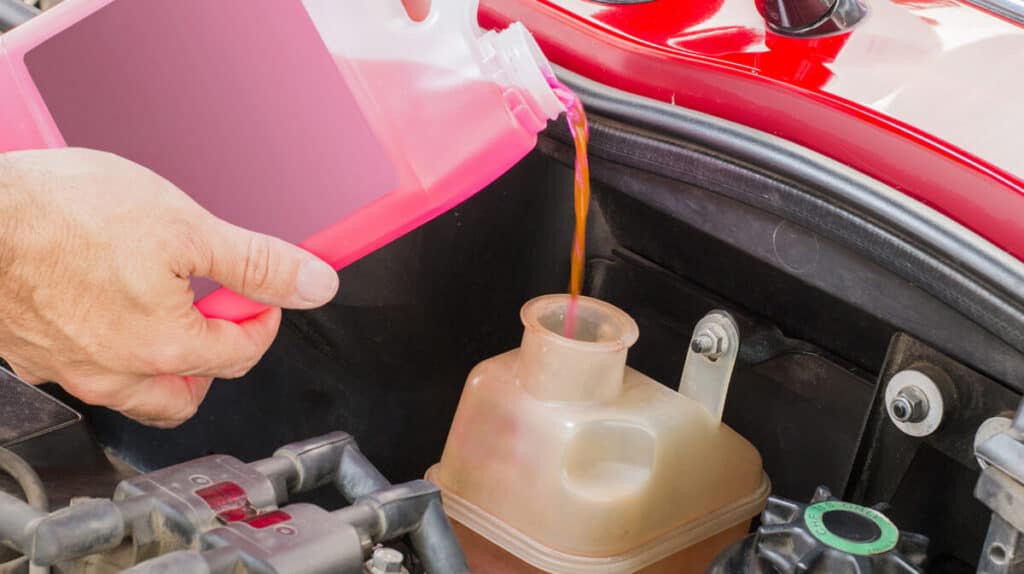Brake fluid is an essential component of any vehicle’s braking system. It’s responsible for transmitting the force from the brake pedal to the brake calipers and allowing the vehicle to stop safely. However, not all brake fluids are created equal, and it’s important to choose the right type for your vehicle to ensure maximum performance and safety.
In this article, we’ll take a closer look at the two most commonly used types of brake fluid: DOT 3 and DOT 4. We’ll examine the differences between them, their respective pros and cons, and which type is right for your vehicle.

DOT 3 vs DOT 4: What’s the Difference?
The main difference between DOT 3 and DOT 4 brake fluids is their boiling points. DOT 4 brake fluid has a higher boiling point than DOT 3, making it less likely to vaporize and lose its effectiveness under high temperatures. This is particularly important in high-performance or heavy-duty vehicles, where the brakes are subject to more stress and heat.
Another key difference is their chemical makeup. DOT 4 brake fluid is made with a higher concentration of glycol ether than DOT 3, which gives it its higher boiling point. However, this also means that it’s more hygroscopic, meaning it absorbs moisture more easily than DOT 3. Moisture in the brake fluid can lead to corrosion and other issues, so it’s important to change the fluid regularly.
Understanding the Pros and Cons of Different Brake Fluid Types
When it comes to choosing between DOT 3 and DOT 4 brake fluids, there are a few things to consider.
DOT 3 brake fluid is generally less expensive and more widely available than DOT 4. It’s also less hygroscopic, which means it’s less likely to absorb moisture and corrode the braking system. However, it has a lower boiling point, which can make it less effective in high-performance or heavy-duty vehicles.
On the other hand, DOT 4 brake fluid is more expensive and less widely available than DOT 3. It’s more hygroscopic, which means it requires more frequent changing and may be more prone to corrosion. However, its higher boiling point makes it more effective in high-performance or heavy-duty vehicles, where the brakes are subject to more heat and stress.
Which Brake Fluid Type is Right for Your Vehicle?
The type of brake fluid that’s right for your vehicle depends on a few factors, including the make and model of your vehicle, your driving habits, and your budget. If you have a high-performance or heavy-duty vehicle, or if you drive in extreme conditions, DOT 4 brake fluid is likely the better choice. However, if you have a standard vehicle and are looking for a more affordable option, DOT 3 brake fluid may be the way to go.
It’s important to consult your vehicle’s owner’s manual to determine which type of brake fluid is recommended for your specific vehicle. Using the wrong type of fluid can lead to decreased braking performance and even damage to your vehicle.
In addition to choosing the right type of brake fluid, it’s also important to change it regularly. Brake fluid can absorb moisture over time, which can lead to corrosion and other issues. It’s recommended to change your brake fluid every two years or 40,000 km, whichever comes first.

Conclusion
Choosing the right type of brake fluid is essential for ensuring the safety and performance of your vehicle’s braking system. While DOT 3 and DOT 4 brake fluids both have their pros and cons, it’s important to select the type that’s recommended for your vehicle and your driving habits. Regularly changing your brake fluid can also help to prevent corrosion and other issues, and ensure your brakes are working at their best.
